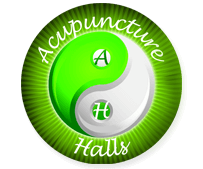
Photo credit to freepik.com
Tinnitus, commonly described as a ringing, buzzing, or hissing sound in the ears, affects millions of people worldwide. This often debilitating condition can significantly impact an individual’s quality of life, leading to issues such as sleep disturbances, anxiety, and depression. Despite various treatment options, finding an effective and consistent remedy for tinnitus remains challenging. Acupuncture, a traditional Chinese medicine practice, has emerged as a potential alternative treatment. This article delves into the efficacy of acupuncture in treating tinnitus by examining the underlying mechanisms, reviewing clinical evidence, discussing patient outcomes, comparing it with other treatments, and suggesting future research directions.
Understanding Acupuncture and Tinnitus
What is Acupuncture?
Acupuncture involves the insertion of fine needles into specific points on the body, known as acupoints, to stimulate healing and restore balance. Rooted in traditional Chinese medicine, acupuncture is believed to work by influencing the flow of Qi (vital energy) along pathways known as meridians. Modern interpretations suggest that acupuncture may stimulate the nervous system, enhance blood circulation, and promote the release of endorphins, contributing to its therapeutic effects.
What is Tinnitus?
Tinnitus is not a disease but a symptom of various underlying conditions. It can result from hearing loss, ear infections, exposure to loud noises, or neurological disorders. The exact pathophysiology of tinnitus is complex and not entirely understood, involving abnormal neural activity in the auditory pathways and brain regions.
Mechanisms of Acupuncture in Treating Tinnitus
The proposed mechanisms by which acupuncture may alleviate tinnitus include:
- Neural Modulation: Acupuncture is thought to modulate neural activity, potentially normalizing the hyperactivity in the auditory pathways associated with tinnitus.
- Blood Flow Enhancement: Improved blood circulation to the auditory system may help in repairing and restoring normal function, which could alleviate tinnitus symptoms.
- Stress Reduction: Chronic stress and anxiety are known to exacerbate tinnitus. Acupuncture’s ability to reduce stress and promote relaxation might indirectly benefit tinnitus patients.
- Endorphin Release: Acupuncture may trigger the release of endorphins and other neurochemicals, providing pain relief and promoting a sense of well-being, which could help patients cope with tinnitus.
Clinical Evidence: Studies and Trials
Several studies and clinical trials have investigated the efficacy of acupuncture in treating tinnitus. Here are some notable examples:
- Systematic Reviews: A systematic review published in the journal Complementary Therapies in Medicine analyzed multiple studies and concluded that while some patients reported improvement in tinnitus symptoms with acupuncture, the overall evidence was inconclusive due to methodological limitations in the studies.
- Randomized Controlled Trials (RCTs): An RCT published in The American Journal of Chinese Medicine found that acupuncture combined with traditional Chinese herbal medicine significantly reduced tinnitus severity compared to a control group. However, the study called for more rigorous trials to confirm these findings.
- Comparative Studies: A study in Journal of Alternative and Complementary Medicine compared acupuncture to standard care (e.g., sound therapy and medication) and found that acupuncture provided additional benefits, particularly in reducing the psychological impact of tinnitus.
Case Studies
Case studies provide valuable insights into acupuncture’s impact on tinnitus. For example, a 45-year-old male with chronic tinnitus reported a substantial reduction in symptoms after ten sessions of acupuncture, coupled with lifestyle modifications. Another case involving a 60-year-old female with tinnitus and associated anxiety showed significant improvement in both conditions after a series of acupuncture treatments.
Integration with Other Therapies
Exploring the integration of acupuncture with other tinnitus treatments could yield synergistic benefits. For instance, combining acupuncture with CBT or sound therapy might address both the physiological and psychological aspects of tinnitus more effectively.
Conclusion
Acupuncture shows promise as a treatment for tinnitus, offering potential benefits through neural modulation, improved blood flow, stress reduction, and endorphin release. Integrating acupuncture with conventional treatments and advancing personalized approaches could enhance its efficacy, providing a valuable addition to the toolkit for managing tinnitus.
You can visit the Acupuncture Halls clinic in San Juan Capistrano near Dana Point and San Clemente if you are interested in tinnitus treatment using acupuncture. You can get assistance from our licensed acupuncturist for any health problems. You can schedule an appointment by calling 949-510-6333 or by filling in this form.
